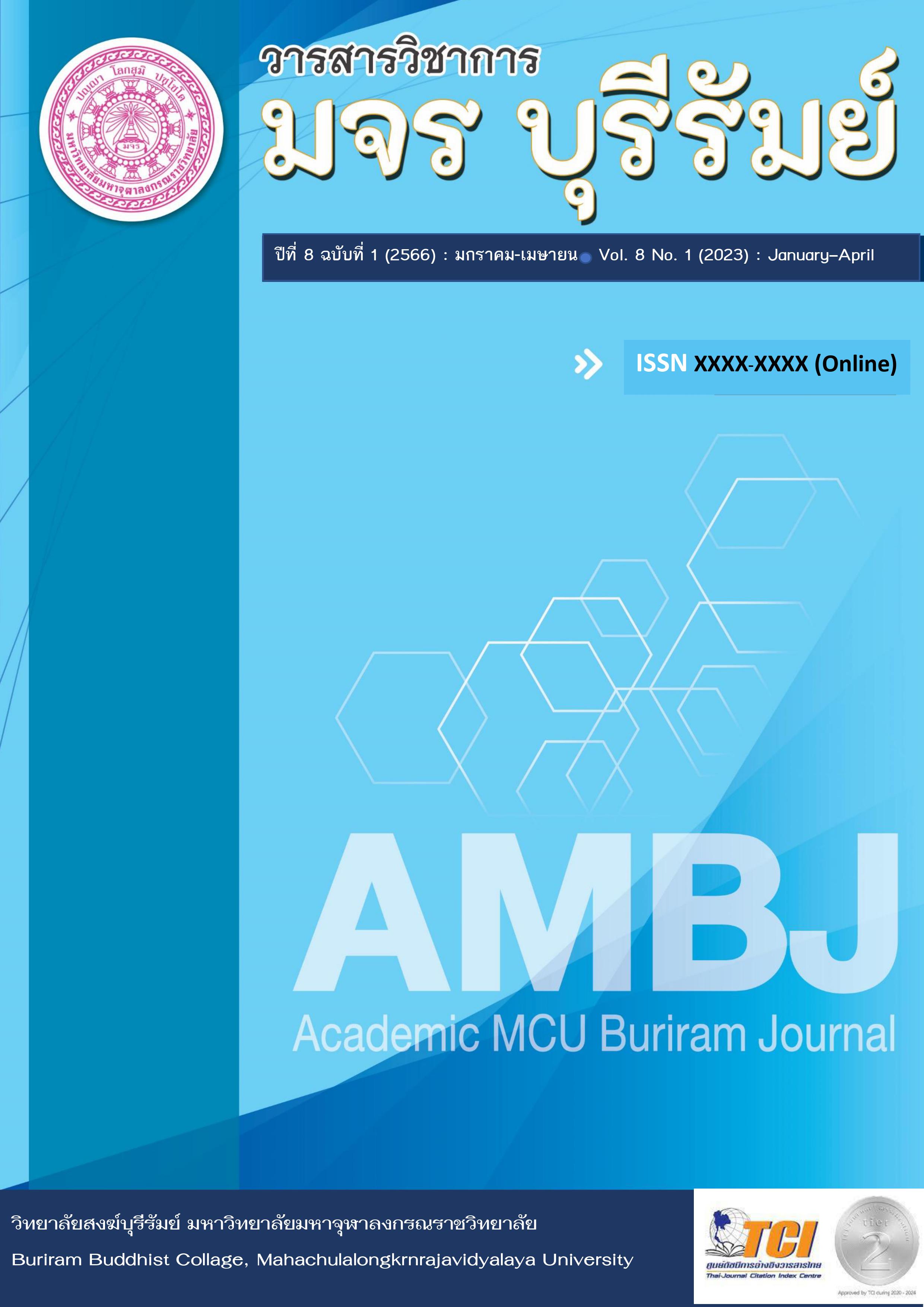Development of Desirable Local Leadership Curriculum in Chaiyaphum Province
Keywords:
Development, Curriculum, Local LeaderAbstract
The purpose of this research were: 1) to study the format of the local leadership curriculum in Chaiyaphum Province, 2) to perform activities of the desirable local leadership curriculum in Chaiyaphum Province, and 3) to evaluate the activities of desirable local leadership curriculum in Chaiyaphum Province. The research methodology was the qualitative research through in-dept interviews with key informants by deep interviewing the people involved and the method mixed with the quantitative research was used to survey, questionnaires for studying the data collection.
The research results found that:
1. For the curriculum format, the leaders and administrators must have long visions, abilities, working skills, update knowledge in the changing situations, good human relation, skills in communication and development. The desirable leadership must have fairness, virtue and morality, kindness, honesty, sincerity, team working. Furthermore, participating leaders must have skills of good human relation, good cooperation and generosity, and love the colleagues. On Buddhist holy days everybody should practice the Dhamma, observe precepts, take insight development because the leaders must be good models.
2. For forming the learning curriculum by activities, the learning of this type can develop the leaders’ potentials because they have done by themselves. The learning leaders mostly learned by activities organized by activity camps. Before learning with any activity of animals one Disa or direction indicated to show oneself clearly such as 6 Disa, Sangahavatthu and 7 Aparihaniyadhamma are effective by Samaggidhamma is training of the learning skills caused relaxation, entertainment and more encourage.
3. For evaluation of developing activities of the desirable local leaders in Chaiyaphum Province, the opinion levels of the participants in the training were analyzed by mean, standard deviation and the opinion levels overall were as follows: the opinions about activity ( = 3.17), the contents of activities ( = 4.13), the learning activities ( = 4.19), the learning media ( = 4.12) and the evaluation of activities ( = 4.17).
References
นิพนธ์ ศศิธรเสาวภา. (2560). ภาวะผู้นำกับการปกครองท้องถิ่น. กรุงเทพมหานคร: โรงพิมพ์มหาวิทยาลัยธรรมศาสตร์.
พระพรหมคุณาภรณ์ (ป.อ.ปยุตโต). (2546). ภูมิธรรมชาวพุทธ. กรุงเทพมหานคร: ธรรมสภาและสถาบันบันลือธรรม.
พระพรหมคุณาภรณ์ (ป.อ.ปยุตโต). (2546). ภาวะผู้นำ. กรุงเทพมหานคร: บริษัท วอง ออโตโมบิล จํากัด.
พระธรรมปิฎก (ป.อ. ปยุตฺโต). (2543). การพัฒนาที่ยั่งยืน. พิมพ์ครั้งที่ 5. กรุงเทพมหานคร: มูลนิธิพุทธรรม.
พระธรรมปิฎก (ป.อ.ปยุตฺโต). (2540). ภาวะผู้นำ. กรุงเทพมหานคร: ธรรมสภา.
พิชาภพ พันธุ์แพ, (2555). ผู้นำกับการจัดการการเปลี่ยนแปลง. พิมพ์ครั้งที่ 3. กรุงเทพมหานคร: บริษัทแอคทีฟ พริ้นท์ จำกัด.
ยอดชาย ทองไทยนันท์. (2526). เทคนิคการจูงใจให้ทำงาน. กรุงเทพมหานคร: โรงพิมพ์และทำปกเจริญผล
Downloads
Published
How to Cite
Issue
Section
License
Copyright (c) 2023 Academic MCU Buriram Journal

This work is licensed under a Creative Commons Attribution-NonCommercial-NoDerivatives 4.0 International License.
ทัศนะและความคิดเห็นที่ปรากฏในบทความวารสารฉบับนี้ถือเป็นความรับผิดชอบของผู้เขียนบทความนั้น ไม่ถือเป็นทัศนะและความรับผิดชอบของบรรณาธิการ





